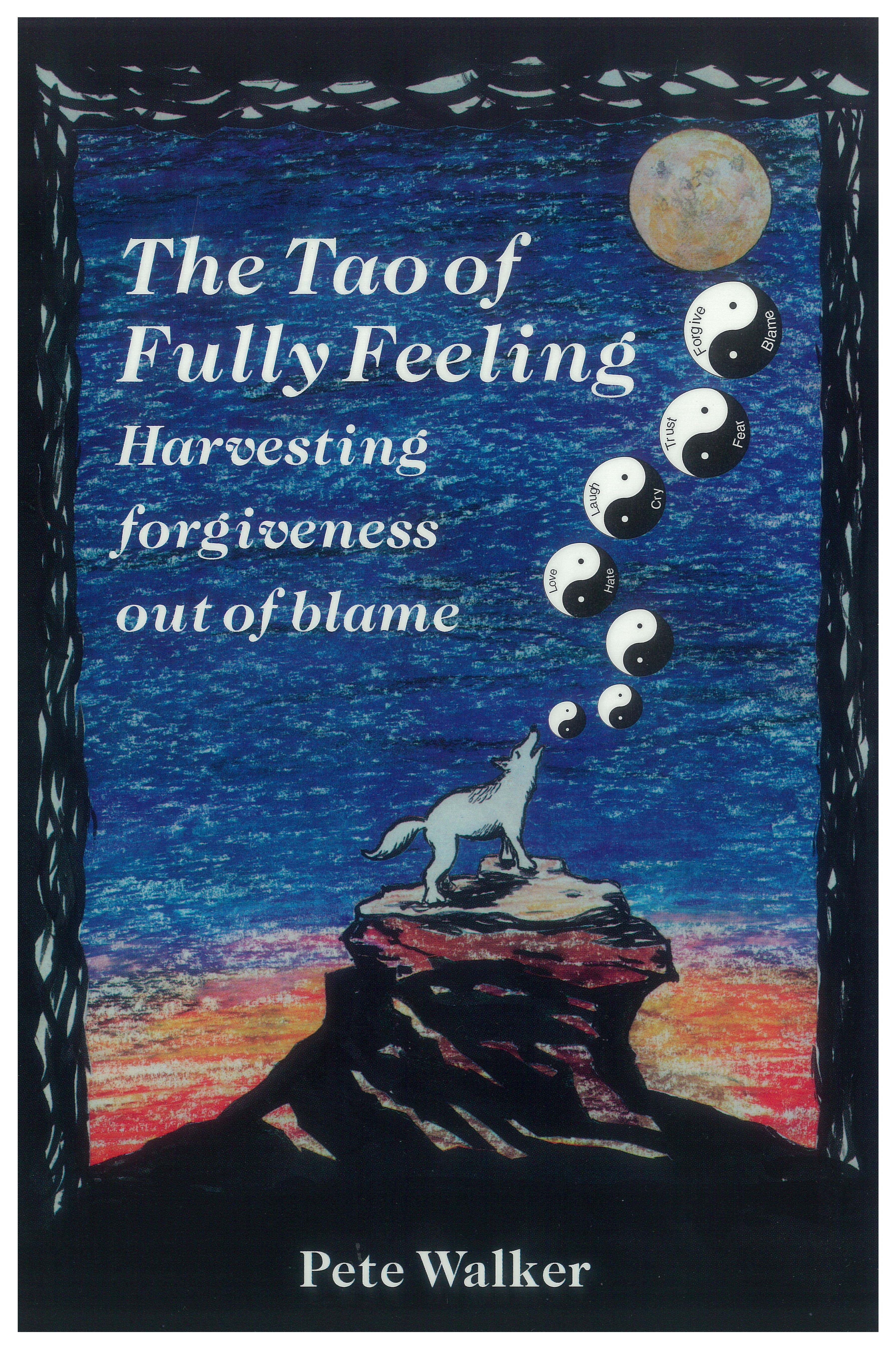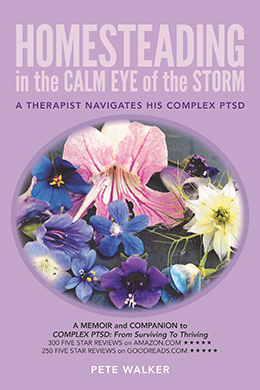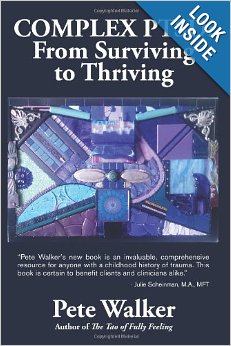|
Home
COMPLEX PTSD ARTICLES
Emotional Flashback Management
Flashback Management
Codependency/Fawn Response
Shrinking the Inner Critic
Shrinking the Outer Critic
Abandonment Depression
Emotional Neglect
Grieving and Complex PTSD
The FourF's: A Trauma Typology
13 Steps Flashbacks Management
Bibliotherapy
FAQs About Complex PTSD
14 Common Inner Critic Attacks
ARTICLES FOR THERAPISTS
Using Vulnerable Self-Disclosure to Treat Arrested Relational-Development in CPTSD
Therapist Heal Thyself
Relational Healing
Treating Internalized Self-Abuse & Self Neglect
BOOK EXCERPTS:
 The Tao of
The Tao of
Fully Feeling
Recovering Emotional Nature
Recovery and Self-Pity
Forgiveness: Begin With Self
Intentions for Recovery
Human Bill of Rights
Lovingly Resolving Conflict
 Homesteading in the Calm Eye of the Storm: Homesteading in the Calm Eye of the Storm:
Navigating CPTSD
My Top 10 Practices
BUY PETE'S BOOKS:

Pete Walker, M.A.
925-283-4575
PO BOX 4657,
Berkeley, CA 94704-9991
|
Co-Counseling
If you are not able to find or afford a "good enough" therapist, and/or if you want to supplement your current therapy as my wife and I do regularly with each other, you can look for a safe partner who is willing to work with you to mutually evolve a co-counseling relationship. There are many forms of co-counseling. Here is a simple structure for establishing a safe and healing co-counseling relationship. I have used this model and derived great benefit from it not only with my wife, but also previously in two different long term counseling exchanges. Please feel free, of course to adapt the model to fit your own mutual needs and agreements.
- Meet weekly and exchange 30 or 60 minute sessions.
- Begin with the counselee talking about all and any of his her concerns and with the counselor refraining from intervening other than to practice, Active Listening, to enhance the counselee's process of full verbal ventilation [See Chapter 5 in my book for an elaboration of verbal ventilation.]
- Active listening is based on an attitude of "unconditional positive regard". It uses non-directive, non-intrusive verbal feedback to let the listener know you are paying attention. This includes responses like "un hunh" and "mmm-hmmm" and a technique known as mirroring. Mirroring occurs when we repeat key words or phrases that the counselee utters to let them know we are really paying attention to them. Advanced mirroring occurs when we paraphrase in our own words what we hear, but is only helpful if we make an accurate translation of what's been said. Finally, the use of open-ended questions is perhaps the penultimate active listening techniques. Questions such as "Can you tell me more about that?", "What happened after that?", and "Do you have other thoughts and feelings about that?" can be very helpful. Individuals vary in the amount of active listening they find helpful. Please try to be open to giving and receiving feedback about how much you or the other would like.
- In order to establish safety and build trust, begin with a commitment to refrain from advice giving, criticism or any kind of unsolicited feedback except active listening. If and when the desire for feedback comes up, it is best to let the counselee determine when, what kind and how much they want. Do not give any feedback unless it is clearly asked for it. The counselee often does well to be specific, and even set limits about the type of feedback desired; e.g., "I'd like to know whether it seems I'm perceiving my boss clearly. and I'd like to just verbally ventilate about my relationship, but don't really want any feedback about it other than active listening". With enough grace, luck, respect and compassion, mutual trust can eventually come so far that you both agree to change the structure to allow for spontaneous feedback at certain times in the session. Don't rush to get there, and always reserve permission to invoke the no- feedback guideline for any given issue, session or indefinite duration of sessions. In this vein, my wife or I might say to each other: " I think I'd just like active listening today. I'd like to just extensively free associate on and explore this anxious feeling in my chest without getting any input about it."
- Practice therapeutic confidentiality. Let what is said in sessions stay in the sessions.
- If both partners read my article:" Relational Healing in Complex PTSD", prior to commencing a co-counseling relationship the use of these principles will most probably be enhanced.
|
|
 The Tao of
The Tao of  Homesteading in the Calm Eye of the Storm:
Homesteading in the Calm Eye of the Storm:

